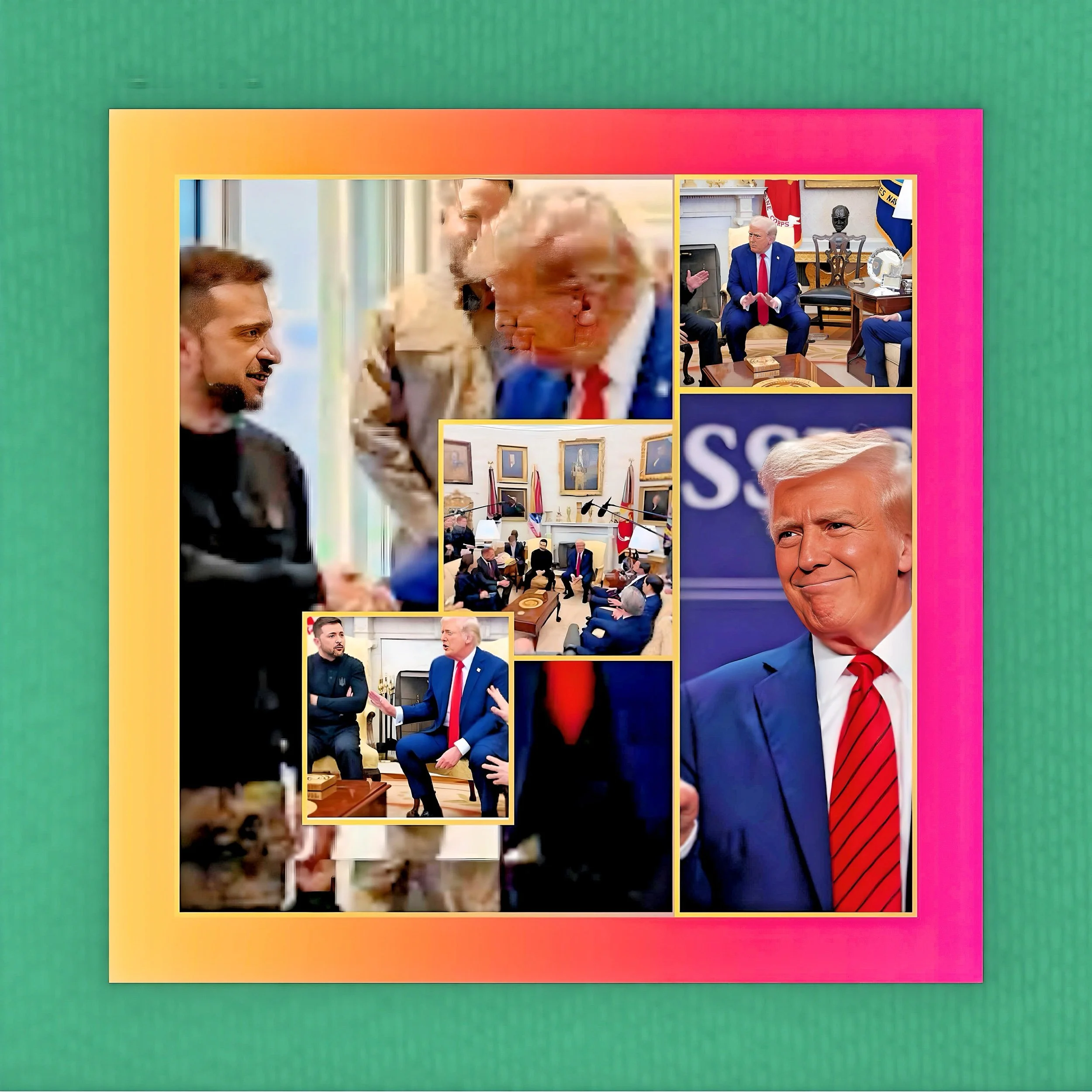The Geopolitical Repercussions of the Zelensky-Trump Meeting: Implications for Ukraine and Europe
Introduction
The February 28, 2025, meeting between Ukrainian President Volodymyr Zelensky and U.S. President Donald Trump has emerged as a watershed moment in transatlantic relations, marked by public acrimony, strategic misalignments, and unresolved tensions.
The encounter, intended to solidify a landmark economic agreement and advance peace negotiations, exposed deepening fissures between Kyiv and Washington while amplifying Europe’s anxieties over its diminishing role in shaping Ukraine’s future.
This article analyzes the meeting’s unfavorable outcomes for Zelensky and Europe, focusing on diplomatic discord, resource concessions, and the erosion of multilateral security frameworks.
Diplomatic Humiliation and Erosion of Ukrainian Leverage
Public Rebuke and Damaged Credibility
The Oval Office meeting devolved into an unprecedented public confrontation, with Trump and Vice President JD Vance chastising Zelensky for perceived ingratitude and intransigence.
Accusations that Zelensky failed to adequately “thank” the U.S. for its support were compounded by Trump’s assertion that Ukraine was “gambling with World War III.”
This televised spectacle undermined Zelensky’s stature as a wartime leader, portraying him as a supplicant rather than an equal partner. Canceling a planned joint press conference further isolated Zelensky, denying him a platform to articulate Ukraine’s strategic priorities.
Such theatrics weakened Kyiv’s negotiating position, signaling to Moscow and European allies that U.S. support is conditional and transactional.
Absence of Security Guarantees
Despite Zelensky’s insistence that “U.S. assistance cannot stop,” the proposed economic pact conspicuously omitted concrete security commitments. The agreement’s focus on resource-sharing—granting the U.S. 50% of revenues from Ukraine’s critical minerals—failed to address Kyiv’s immediate need for military aid and long-term defense assurances.
This omission leaves Ukraine vulnerable to Russian territorial advances, particularly in regions holding 40–50% of its mineral deposits. Without explicit security guarantees, Zelensky’s ability to resist pressure for territorial concessions in future peace talks is severely compromised.
Resource Extraction and Strategic Dependency
Exploitation of Critical Minerals
The economic pact’s centerpiece—a U.S.-managed fund controlling half of Ukraine’s resource revenues—risks entrenching dependency on American capital.
Rare earth elements, vital for technology and defense industries, are now contingent on U.S. corporate interests, potentially sidelining European firms.
Trump’s emphasis on “pragmatism” suggests that resource access, rather than Ukrainian sovereignty, drives U.S. policy. This aligns with Washington’s broader strategy to counter China’s mineral dominance, but it subordinates Ukraine’s reconstruction needs to global resource competition.
Russian-Controlled Resources and Bargaining Leverage
Approximately 40–50% of Ukraine’s critical mineral deposits lie in Russian-occupied territories, meaning their exploitation hinges on Moscow’s cooperation.
Analysts speculate that the U.S. might leverage these resources as a “bargaining chip” in bilateral negotiations with Russia, effectively sidelining Kyiv. Such a scenario would legitimize Russia’s territorial gains and incentivize further aggression, undermining the international order Europe seeks to uphold.
Europe’s Diminished Influence and Fragmented Unity
Exclusion from Peace Negotiations
The U.S.-led peace talks in Saudi Arabia, conducted without Ukrainian or European participation, exemplify Washington’s unilateral approach.
By marginalizing the EU, Trump has disrupted the multilateral framework that previously underpinned Western support for Ukraine. European Commission President Ursula von der Leyen’s call for “strategic autonomy” reflects growing recognition that reliance on U.S. diplomacy jeopardizes Europe’s security interests.
However, divergent positions among member states—such as Germany’s plea for “changing scenarios” versus France’s demand for “lasting security guarantees”—have stymied cohesive action.
Energy and Economic Vulnerabilities
Europe’s dependence on rare earth imports from China makes it susceptible to U.S.-Ukraine resource deals prioritizing American industries. While the pact could theoretically diversify Europe’s supply chains, the lack of EU involvement leaves Brussels scrambling to adapt.
Moreover, Trump’s suggestion that aid to Ukraine be redirected toward “rebuilding” implies reduced U.S. contributions to European stability funds, shifting financial burdens onto already strained EU budgets.
Implications for Transatlantic Relations and Global Security
Trump’s Alignment with Putin
Trump’s repeated deference to Putin—including claims that the Russian leader “went through a hell of a lot with me”—signals a willingness to accommodate Moscow’s interests.
This aligns with Vance’s longstanding skepticism of Ukrainian aid and undermines Europe’s efforts to isolate Russia economically and diplomatically. By framing the conflict as a liability rather than a shared security challenge, the U.S. has emboldened Moscow to escalate hostilities, knowing Western resolve is fracturing.
Erosion of NATO Cohesion
The meeting’s rancor exacerbates existing tensions within NATO, where Eastern European members fear abandonment.
Trump’s transactional approach to alliances weakens collective defense principles, encouraging Russia to test NATO’s eastern flank. As evidenced by Scholz’s vague calls for “coordinated effort,” Europe's inability to present a unified front further erodes deterrence credibility.
Conclusion
A Precarious Path Forward
The Zelensky-Trump meeting has exacerbated vulnerabilities for Ukraine and Europe, revealing the fragility of transatlantic partnerships in an era of great-power competition.
Zelensky's lack of security guarantees and public humiliation have weakened his domestic and international standing, forcing him into unfavorable resource concessions.
Europe, meanwhile, faces strategic irrelevance as U.S. priorities shift toward countering China and appeasing Russia.
To mitigate these challenges, Europe must accelerate efforts to achieve “strategic autonomy,” possibly through enhanced defense integration and independent resource partnerships with Ukraine. Kyiv, for its part, should diversify alliances, leveraging its critical minerals to engage EU and Asian investors.
However, the February 28 meeting may begin a more fragmented and volatile global order without recalibrating U.S. foreign policy.






